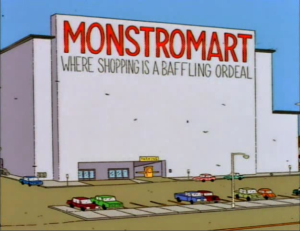 Recently, I wrote an article about when it is and isn’t a good idea to redesign your website. But let’s say that you have solid, strategic reasons for doing so and it’s time to start taking a look at a new website design. The first – and arguably most important – bit of advice I have is that “less is more.”
Recently, I wrote an article about when it is and isn’t a good idea to redesign your website. But let’s say that you have solid, strategic reasons for doing so and it’s time to start taking a look at a new website design. The first – and arguably most important – bit of advice I have is that “less is more.”
I spend a lot of time with clients working to convince them that the more information and more calls to action they have on their website, the less likely it is that a visitor will choose any of them. And so I’d like to share with you three TED talks that provide theory, studies and details about how our misunderstanding of choice can often times make it harder – not easier – on people’s ability to choose.
Malcolm Gladwell: Choice, happiness and spaghetti sauce
This was the first and most inflential talk I’ve seen on the topic of having too many choices. “Tipping Point” author Malcolm Gladwell gets inside the food industry’s pursuit of the perfect spaghetti sauce and makes a larger argument about the nature of choice and happiness.
Sheena Iyengar: The art of choosing
Sheena Iyengar studies how we make choices — and how we feel about the choices we make. At TEDGlobal, she talks about both trivial choices (Coke v. Pepsi) and profound ones, and shares her groundbreaking research that has uncovered some surprising attitudes about our decisions.
Barry Schwartz: The paradox of choice
And finally, even if your visitor can navigate through the gauntlet of choices put before them, there is every reason to believe that they will feel badly about it after. Psychologist Barry Schwartz takes aim at a central tenet of western societies: freedom of choice. In Schwartz’s estimation, choice has made us not freer but more paralyzed, not happier but more dissatisfied.
So where you’re considering how many buttons to put on your home page or building out that navigation menu, remember that more choices are generally bad, that massive cultural differences in cultural perceptions of choice exist, and that the very act itself can be dissatisfying.

